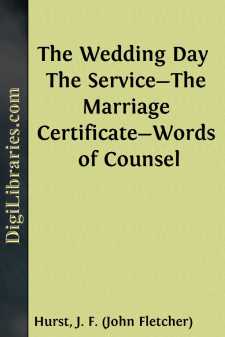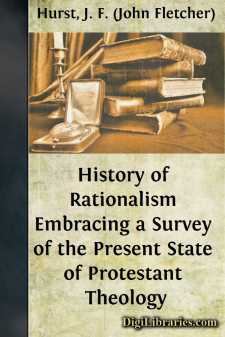Categories
- Antiques & Collectibles 13
- Architecture 36
- Art 48
- Bibles 22
- Biography & Autobiography 813
- Body, Mind & Spirit 142
- Business & Economics 28
- Children's Books 15
- Children's Fiction 12
- Computers 4
- Cooking 94
- Crafts & Hobbies 4
- Drama 346
- Education 46
- Family & Relationships 57
- Fiction 11829
- Games 19
- Gardening 17
- Health & Fitness 34
- History 1377
- House & Home 1
- Humor 147
- Juvenile Fiction 1873
- Juvenile Nonfiction 202
- Language Arts & Disciplines 88
- Law 16
- Literary Collections 686
- Literary Criticism 179
- Mathematics 13
- Medical 41
- Music 40
- Nature 179
- Non-Classifiable 1768
- Performing Arts 7
- Periodicals 1453
- Philosophy 64
- Photography 2
- Poetry 896
- Political Science 203
- Psychology 42
- Reference 154
- Religion 513
- Science 126
- Self-Help 84
- Social Science 81
- Sports & Recreation 34
- Study Aids 3
- Technology & Engineering 59
- Transportation 23
- Travel 463
- True Crime 29
J. F. (John Fletcher) Hurst
John Fletcher Hurst (1834–1903) was an American bishop, educator, and author, primarily known for his contributions to Methodist literature and theology. He served as the first chancellor of American University and played a crucial role in its founding. Hurst authored several significant works, including "The History of Rationalism" and "Short History of the Christian Church," which reflect his deep scholarly engagement with religious history and thought. His leadership and writings had a lasting impact on the Methodist Episcopal Church and American religious education.
Author's Books:
Sort by:
early beloved: we are gathered together here in the sight of God, and in the presence of these witnesses, to join together this man and this woman in holy Matrimony; which is an honorable estate, instituted of God in the time of man's innocency, signifying unto us the mystical union that exists between Christ and his Church; which holy estate Christ adorned and beautified with his presence, and...
more...
PREFACE. There were no prefatory remarks to the first and second editions of the following work. It was thought, when the printer made his final call for copy, that a preface might be written with more propriety if the public should indicate sufficient interest in the book to make its improvement and enlargement necessary. That interest, owing to the theme rather than the treatment, has not been...
more...



